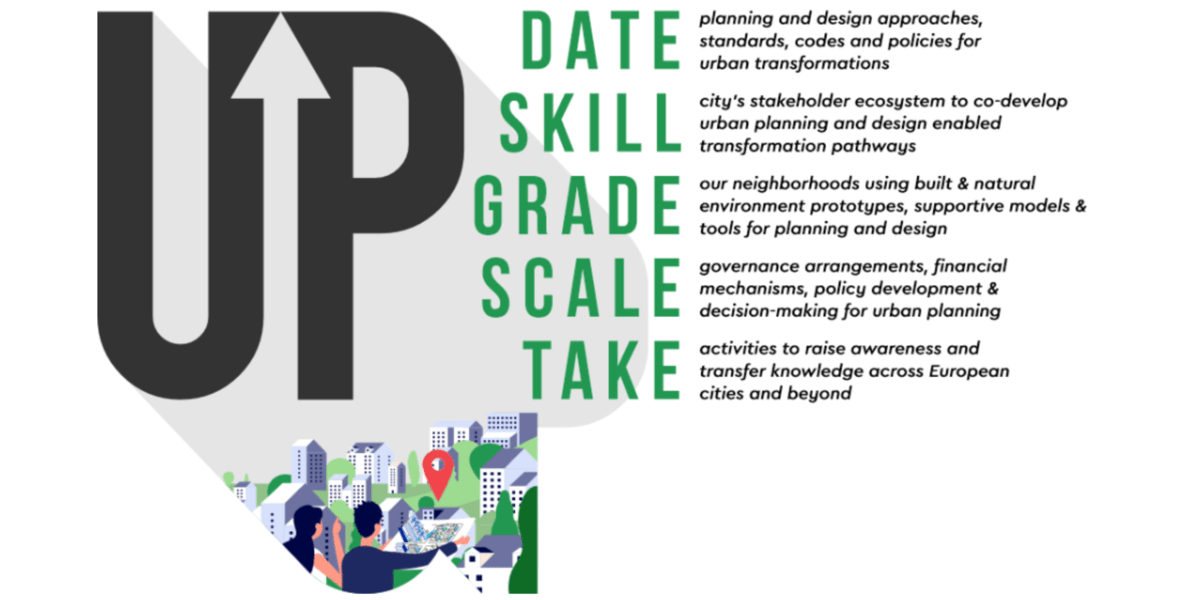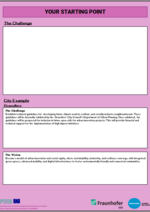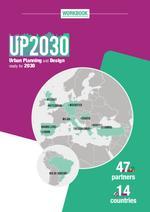5UP Approach
The primary focus of this platform is on the upscale component, providing cities with financial mechanisms and governance recommendations that support them on upscaling. However, there are many prior steps to be taken to develop the initiative that is proposed to be scaled up, and it is often a winding process that is difficult to implement. The UP2030 project has developed a method to guide cities along this path.
In the UP2030 project, 11 cities from different socio-economic and geographical contexts have tested the 5UP methodology, which has been designed to guide cities in designing projects, plans and strategies that are aligned with their socio-technical transition to meet the objectives of climate neutrality, resilience and social justice.
The 5UP methodology consists of five interlinked phases:

Note: you can find further information about the 5UP Methodology on the MOOC, within Module 0 "Introduction" --> "2. Structure of the course".
Why is this methodology innovative?
The 5-UP approach is a systems thinking framework that allows cities to analyse climate action implementation across five interlinked dimensions: needs, policies, and instruments (UPDATE), capacity building (UPSKILL), prototyping and piloting (UPGRADE), replicating, rolling out, or transferring success (UPSCALING) and engagement, communication, and dissemination of key mechanism and knowledge (UPTAKE). With this holistic view, the innovative character of the 5-UPs lies on drifting apart from isolated pilots, towards understanding the whole system. The 5-UPs guide the conceptualization of integral solutions for climate challenges that also involve capacity building, human agency, prototyping, and upscaling to mainstream climate action systemically.
So, how can this methodology be applied in your city? Check the attached workbook to learn more about how to integrate climate neutrality, resilience and spatial justice into urban planning. The original version is in an Excel file, which compiles all the resources and information on the different phases. A simplified version has also been created in PDF format, so that it can be used in a different way.

